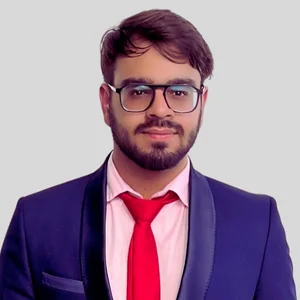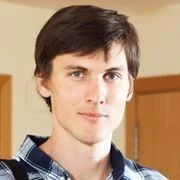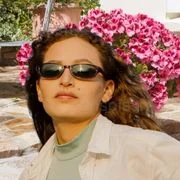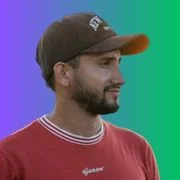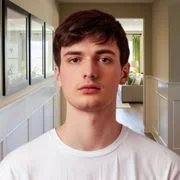

Hire The Best Theory of Computation Tutor
Top Tutors, Top Grades. Without The Stress!
10,000+ Happy Students From Various Universities
Choose MEB. Choose Peace Of Mind!
How Much For Private 1:1 Tutoring & Hw Help?
Private 1:1 Tutors Cost $20 – 35 per hour* on average. HW Help cost depends mostly on the effort**.
Theory of Computation Online Tutoring & Homework Help
What is Theory of Computation?
Theory of Computation explores what problems can be solved by abstract machines (like DFA (Deterministic Finite Automaton)) and how efficiently. It blends mathematical proofs with models of computation to understand limits—think of regex engines in text editors or traffic‐light controllers ensuring safety on busy roads.
Also known as Automata Theory, Formal Language Theory, or Computability and Complexity Theory.
Major topics include: • Automata (finite, pushdown, Turing) • Formal languages and grammars (regular, context‐free…) • Decidability and the Halting Problem • Complexity classes (P, NP (nondeterministic polynomial time), PSPACE) • Reductions and completeness Real‐life: compiler design in GCC, pattern matching in Python, or resource scheduling in OS.
In 1936 Alan Turing defined his Turing Machine, setting a gold standard for computation. Around the same time Alonzo Church proposed the Lambda Calculus. Noam Chomsky’s 1956 hierarchy classified grammars, guiding compiler theory. In 1971 Stephen Cook proved the first NP‐completeness result; Richard Karp followed with 21 NP‐complete problems. The 1980s saw the rise of complexity classes beyond NP. These milestones have shaped modern algorithms, programming languages and even cryptography, forging a rich tapestry of TCS research that continue to evolve.
How can MEB help you with Theory of Computation?
Do you want to learn Theory of Computation? MEB offers one-on-one online Theory of Computation tutoring just for you.
If you are a school, college or university student and need top grades on: • assignments • lab reports • live assessments • projects • essays • dissertations you can use our 24/7 instant online Theory of Computation homework help service.
We prefer to chat on WhatsApp. If you do not use WhatsApp, please email us at meb@myengineeringbuddy.com
Most of our students come from the USA, Canada, the UK, the Gulf, Europe and Australia.
Students ask us for help because: • the subject is hard to learn • there is too much homework • questions or ideas feel too complex • they have health or personal issues • they work part time or missed classes • they find it hard to keep up with the tutor’s pace
If you are a parent and your ward is having trouble in this subject, contact us today. Your ward will thank you when they ace their exams and homework.
MEB also offers help in more than 1000 other subjects. Our expert tutors make learning easier and help students succeed. It is smart to ask for help from a tutor when you need it so school stays stress free.
DISCLAIMER: OUR SERVICES AIM TO PROVIDE PERSONALIZED ACADEMIC GUIDANCE, HELPING STUDENTS UNDERSTAND CONCEPTS AND IMPROVE SKILLS. MATERIALS PROVIDED ARE FOR REFERENCE AND LEARNING PURPOSES ONLY. MISUSING THEM FOR ACADEMIC DISHONESTY OR VIOLATIONS OF INTEGRITY POLICIES IS STRONGLY DISCOURAGED. READ OUR HONOR CODE AND ACADEMIC INTEGRITY POLICY TO CURB DISHONEST BEHAVIOUR.
What is so special about Theory of Computation?
Theory of Computation stands out by exploring the very limits and capabilities of computers. It uses simple models like finite machines and abstract languages to answer what problems can be solved and how efficiently. This subject is unique because it reveals fundamental rules behind all software and programs, helping students see beyond coding to the core logic that underlies any computer task.
Compared to hands‑on courses like programming or networking, Theory of Computation offers strong proof skills and a clear view of algorithm limits, so it builds mental rigor. However, it can feel abstract and less tied to practical projects. Students may find its proofs and formal models harder than coding tasks, but its insights pay off in better problem solving and design excellence.
What are the career opportunities in Theory of Computation?
A common path after a course in Theory of Computation is graduate study in computer science or related fields. Many students move on to master’s or Ph.D. programs focusing on complexity theory, formal languages, automata, or quantum computing. These programs deepen your understanding of computing limits and open doors to cutting‑edge research.
In the job market, knowledge of formal models and algorithms is valued in roles like software engineer, compiler developer, formal methods engineer, and security analyst. Day‑to‑day work often involves proving correctness of systems, designing efficient algorithms, building language parsers, and checking code for bugs using mathematical tools.
We learn and prepare for tests in Theory of Computation to build a solid foundation in how computers process information. This study sharpens logical thinking, helps in mastering rigorous proofs, and lays the groundwork for tackling advanced topics in algorithms, cryptography, or AI.
Applications of Theory of Computation show up in compiler design, model checking, protocol verification, and language processing. Recent trends include using formal methods for software security, blockchain smart contracts, and reliable AI systems.
How to learn Theory of Computation?
Start by breaking the subject into small steps. First, review basic set theory and logic from a discrete math book or online notes. Next, learn about finite automata: read definitions, draw state diagrams, and trace sample inputs. Then move to context‑free grammars and pushdown automata, writing simple grammars yourself. After that, study Turing machines by simulating basic operations on paper. Finally, practice proofs of closure properties and decidability questions. Work on exercises every day and compare your answers to solutions.
Theory of Computation can seem tricky because it uses formal definitions and proofs instead of calculations. If you keep up with small daily goals, learn one concept at a time, and solve many examples, you’ll find it gets easier. The key is practice: the more you draw automata, write grammars, and prove theorems, the more natural it feels.
You can definitely start on your own using textbooks and free online lectures. If you get stuck on a proof or a tricky definition, a tutor can give you hints, check your work, and explain ideas in a way that clicks. Self‑study works well when you’re disciplined, but a tutor can speed up your progress and clear up confusion faster.
Our tutors at MEB offer 1:1 online sessions any time you need, with expert help on every topic in Theory of Computation. We guide you through concepts, check your homework, and share strategies for proofs and exam questions. You can also get customized assignments and detailed feedback so you build confidence and master each topic step by step.
Most students spend about six to eight weeks studying Theory of Computation, dedicating around five hours a week. If you’re preparing for an exam, set aside two to four weeks for intensive review, focusing on your weak spots. Consistent practice—at least an hour a day—helps you absorb definitions and proof techniques, so you enter your test feeling ready.
Useful resources include YouTube channels like Neso Academy and Gate Smashers for clear lecture videos; websites such as GeeksforGeeks and MIT OpenCourseWare for notes and exercises; and books like “Introduction to the Theory of Computation” by Michael Sipser, “Automata Theory, Languages, and Computation” by Hopcroft and Ullman, and “Elements of the Theory of Computation” by Lewis and Papadimitriou. You can also find practice problems on UVA Online Judge and join MOOCs on Coursera or edX to reinforce your learning.
College students, parents, tutors from USA, Canada, UK, Gulf etc are our audience. If you need a helping hand—be it online 1:1 24/7 tutoring or assignments—our tutors at MEB can help at an affordable fee.









